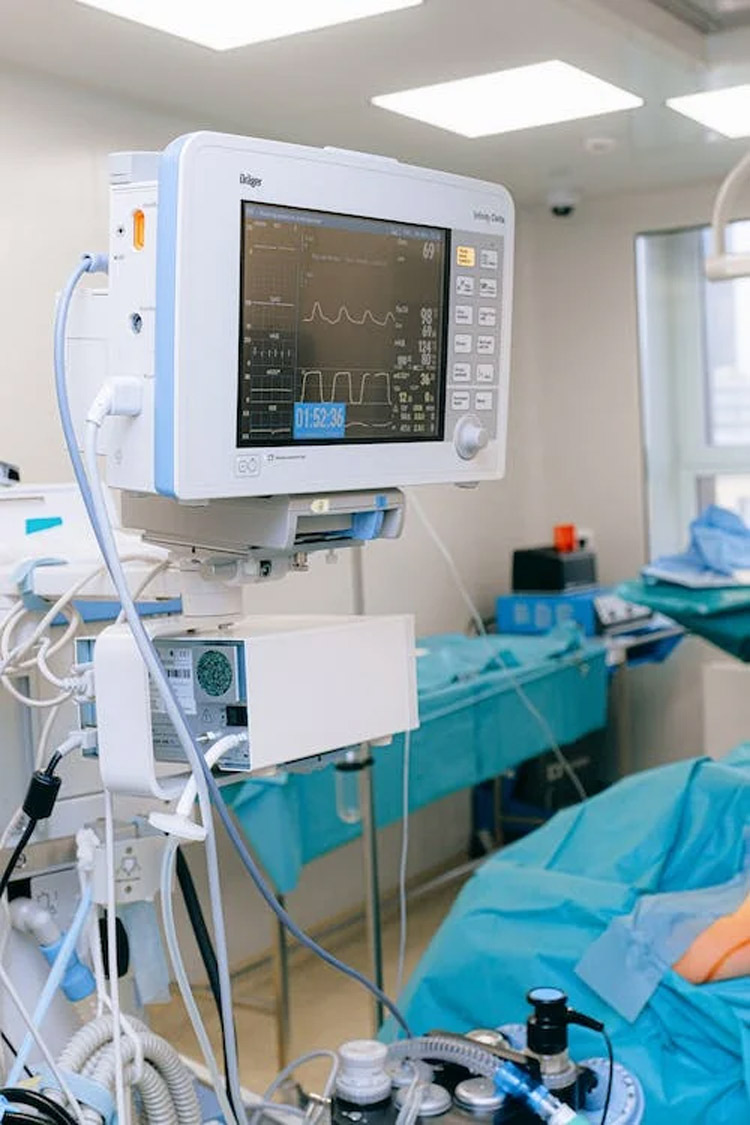
This post provides detailed information on the unit clerk job description and career, including the key duties, tasks, and responsibilities that they typically perform.
What Does a Unit Clerk Do?
Unit clerks play an integral part in managing the flow of information in the nursing unit of a hospital and are often times the first point of contact for patients and likewise their families.
The unit clerk job description involves directing and greeting visitors, patients, as well as staff. They respond to inquiries, answer incoming calls, relay messages and redirect calls.
They assist health-care providers and physicians as the case may be. They process and transcribe physician orders which include laboratory, medication, treatment orders and diagnostic imaging.
As part of their role, they schedule patients for treatment and tests, and also maintain patient charts and records.
Unit clerks are responsible for patent’s discharge and appointment dates and also contacting them to advice on admission. If need be, they might help patients in the arrangement of transportation.
In the same vein, they also engage in other clerical duties. These includes preparing staff time sheets, recording unit meeting minutes, processing health care billings, and patient care supplies, updating room lists and requisitioning office.
These clerks work in a number of different facilities including medical centers and hospitals. They may work part-time or full-time hours.
Their shift schedules may include a combination of weekend shifts with the traditional day and evening shifts.
They usually spend the majority of their day fulfilling repetitive and repetitive routine.
Anyone aspiring to become a unit clerk should be conversant with computers.
He/she should also be someone who enjoys working in customer service role as they will frequently interact with staff and clients.
He/she should also be able to multi-task, as well as prioritize assignments.
Unit Clerk Job Description Sample/Example/Template
Unit clerks in most organizations usually perform some or all of the tasks, duties, and responsibilities given in the sample job description below.
- Help patients by obtaining needed services from nurses, responding to intercom requests by physicians and other hospital personnel
- Welcome visitors by greeting them in on the telephone or in person; answering inquiries; giving directions; relaying calls to patients; referring inquiries to physicians and nurses
- Provide information by answering requests and questions
- Establish patient record by assigning patient number, preparing folder and completing patient identification information
- Document patient care services by copying physician and nursing notes to department and patient records
- Arrange discharges by notifying patient transporter and business office service
- Maintain unit operations by following guidelines, policies and procedures; reporting needed changes
- Protect hospital operations and maintain patient confidence by keeping client related information confidential
- Maintain unit supplies inventory by checking stock so as to determine inventory level; anticipate needed supplies; and verify receipt of supplies
- Keep unit equipment operational by following established procedures and manufacturer’s instructions, will also call for repairs
- Complete database backups in order to secure patient information by
- Adhere to infection-control protocols and policies
- Maintain continuity among work teams by communicating and documenting actions, continuing needs and irregularities
- Contribute to team effort by accomplishing needed results
Unit Clerk Job Description for Resume
A resume for seeking the job of unit clerk can be writing using the job description example above to make certain sections of the resume, such as the work history section.
Unit Clerk Requirements: Skills, Knowledge, and Abilities for the Position of
Below are minimum skills and qualification requirements employers usually demand for hiring applicants for the unit clerk position:
- Attention to detail
- Willingness to perform repetitive or routine work
- Customer service skills
- Good dress sense cum professional appearance
- Solid computer and keyboarding skills
- Strong sense of responsibility
- Ability to solve problems logically
- Critical thinking skills
- Multitasking skills
- Ability to work in a busy environment
- Exercises a high degree of ethics
- Good team worker.
Unit Clerk Salary
The average unit clerk salary in the U.S. is $32,776 in a year. The highest states for unit clerks are: New York, NY, $38,040; Philadelphia, PA, $34,551; Atlanta, GA, $34,512; Brooklyn, NY, $34,384; and Detroit, MI, $33,925 per year.
There are currently over 145,009 health unit clerks working in the United States.
White is the most common ethnicity among hospital unit clerks, accounting for 58.2% of all hospital unit clerks.
In comparison, 22.9% of the population is Hispanic or Latino, while 9.8% is Black or African American.
Women make up 90.6% of hospital unit clerks, while men make up 9.4%.

Unit Clerk Career Opportunities
There are several career opportunities that a unit clerk can pursue, these include:
- Physician Office Receptionist
The physician office receptionist is a unit clerk who assists physicians and surgeons in receiving telephone calls and visitors.
This is usually done in the receptionist’s office or on an answering machine.
Their job duties include providing messages to physicians, handling appointments, scheduling doctor appointments, taking messages, and scheduling patients’ drop-ins.
2. Health Insurance Biller/Clerk
The health insurance biller/clerk processes health care claims for a health insurance company.
The biller/clerk processes insurance claims for services rendered by medical providers and hospitals.
They usually work in a medical office and provide services to their clients via mail, telephone or computer.
3. Health Care Unit Clerk
The health care unit clerk is a multifaceted position involving the administration of patient records and paperwork in hospitals, clinics, and nursing homes.
They may also be known as a clinical clerk, or medical records clerk.
The health care unit clerk is responsible for retrieving, updating, and storing patient information such as medical history, medications and physical status.
They may also be responsible for preparing charts and reports that may be required by either physicians or other medical professionals.
4. Medical Records Clerk
The medical records clerk is responsible for collecting, entering, and organizing the medical records of patients in hospitals and clinics.
Their primary duties include retrieving patient information such as their name, date of birth, address etc. and entering that information into the medical records system used by the clinic or hospital.
They may also be responsible for filing and retrieving patient files, charts and reports.
5. Medical Transcriptionist (MT)
The medical transcriptionist is a unit clerk who transcribes recorded audio messages from physicians into written text.
These messages can range from regular prescription renewals to death certificates.
The medical transcriptionist uses a computer to type these messages as well as other files into written text.
They may also be responsible for editing reports, maintaining, and updating computer related equipment and working with other units such as billing and scheduling.
6. Insurance Claims Processor (ICP)
The insurance claims processor is a unit clerk who claims, audits, and processes insurance claims from medical providers, hospitals and clinics.
They work in an office environment to process payments for services rendered by medical providers.
Their job duties include verifying insurance benefits, processing claims, and submitting payments to the providers.
7. Health Care Records Technician (CRR)
The health care records technician (or as it is most commonly known, the CRR) is responsible for retrieving and filing patient records in a medical clinic or hospital.
The CRR is required to have good attention to detail as they are responsible for storing patient information, such as medical history, in the correct order.
8. Patient Access Representative (PA)
The patient access representative is responsible for receiving information from patients who have an appointment at the hospital or clinic.
The PA schedules patients with the necessary workers and assist them in completing any forms and insurance forms required.
9. Outpatient Coder (OC)
The outpatient coder is a unit clerk who is responsible for coding insurance claims of patients that were treated as outpatients.
Their job duties include retrieving information from the medical providers, entering that information into the computer, verifying insurance benefits and then submitting those claims to the insurance companies.
10. Medical Assistant or Assistant Medical Office (AMA)
The medical assistant is a unit clerk who is responsible for recording and filing prescriptions dispensed by doctors and surgeons within the clinic or hospital.
They are also responsible for filing patient charts, organizing patient files and filing these records in order.
Challenges faced by Unit Clerk on the Job
There are many challenges that come with being a unit clerk. Some of these include:
- Increasing Government Regulations and Electronic Record
As the medical industry grows, the government keeps raising regulations that make it harder for medical unit clerks to keep up with.
Medical unit clerks are required to be trained and certified on various systems, programs, and methods of communicating with other employees within the clinic.
The need for information is growing at a fast pace and keeping track of this information is becoming more difficult than in years before, when most communication was done by phone or fax.
2. Increasing Paperwork in the Office Setting
Increasing paperwork increases the stress on unit clerks and makes them more prone to errors.
Unit clerks are responsible for retrieving patient information such as medical history, and entering this information into a computerized record system.
An error made in the retrieval of this information can result in medical records losing their integrity or may even result in losing vital medical information.
3. The Technological Challenge of Keeping Up with New Systems
Included in the increased paperwork is the integration of new systems in every level of the medical field.
In order for medical unit clerks to keep their jobs, they must be trained on new systems and programs used by their companies.
This can take a significant amount of time from both the worker and employer.
4. Overcoming Computer Errors and Human Errors Within the System
Computer errors are a huge problem in the medical industry because most information is now handled electronically.
An error made by an employee can result in incorrect patient information being retrieved or lost altogether.
How to Become a Unit Clerk
After high school, you must complete a short degree or certificate program to become a unit clerk, also known as a unit coordinator.
After completing formal education and gaining some experience, you can pursue certification through the National Association of Health Unit Coordinators, Inc. Organizational, communication, and computer skills are required for this career.
Unit clerk positions are available in hospitals, clinics, and other medical facilities.
Major Benefits of a Unit Clerk Career
There are many benefits of having a unit clerk career. These include:
- Salary
Salaries for unit clerks vary depending on the employer and position, but are usually around $30,000 – $45,000 a year for entry level positions.
Having a unit clerk career allows an individual to pursue higher education, get better quality training and have greater responsibilities within their organization.
2. Growth Potential
With a unit clerk career, there are growth potential and advancement opportunities available.
As the industry grows, so does the need for this position.
Unit clerks in future positions could have increasing responsibilities and more control over their work environment.
3. Advancement Opportunities
In the medical field as an entry level unit clerk, an individual may start at a desk job, but eventually advance to a supervisor, manager, or director position where they can lead or supervise other workers who are performing their duties in the same office setting.
4. Continuing Education
Unit clerks can pursue continuing education through formal education, online training and seminars offered by their employers.
5. Health Benefits
Those who gain employment with a unit clerk career benefit from health insurance coverage, paid vacations and retirement benefits offered by their employers.
6. Job Security
There is a high demand for unit clerks because positions are always available within the medical field.
Job security is provided and employment will last throughout the individual’s career, unless they choose to seek employment elsewhere.
7. Flexible Hours
Unit clerks have the opportunity to attain flexible hours. As an entry level unit clerk, an individual may work a schedule that will allow them to choose their own days and times for work.
Conclusion
The unit clerk career is in demand and provides a stable, secure job with much room for advancement.
Within the medical industry, there is a high growth potential for unit clerks. Those who choose this career path will be able to pursue educational opportunities and advance within the company they work for.












